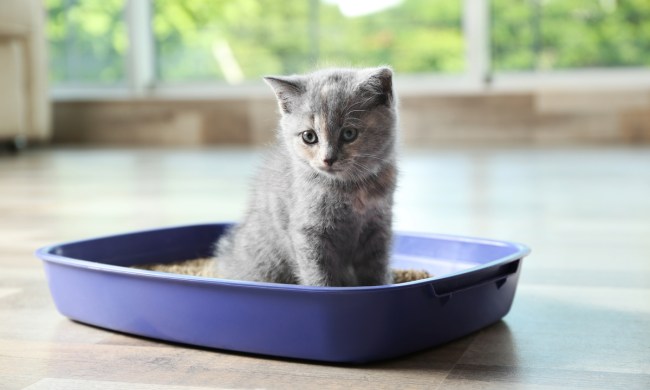Fleas are one of every pet owner’s worst nightmares. These little critters have been causing pain for humans and animals for thousands of years and they're still around today. They can easily jump onto your pets —both cats and dogs — and then onto surfaces in your home. Even cat litter boxes can house fleas!
If you notice fleas in the litter box, there’s a good chance that they have already migrated throughout your home, too. But there is no reason to panic! At the first sign of fleas, acting fast can help you get rid if the pests just as quickly as they arrived. Use this guide to discover how to identify fleas and get rid of fleas in the litter box.
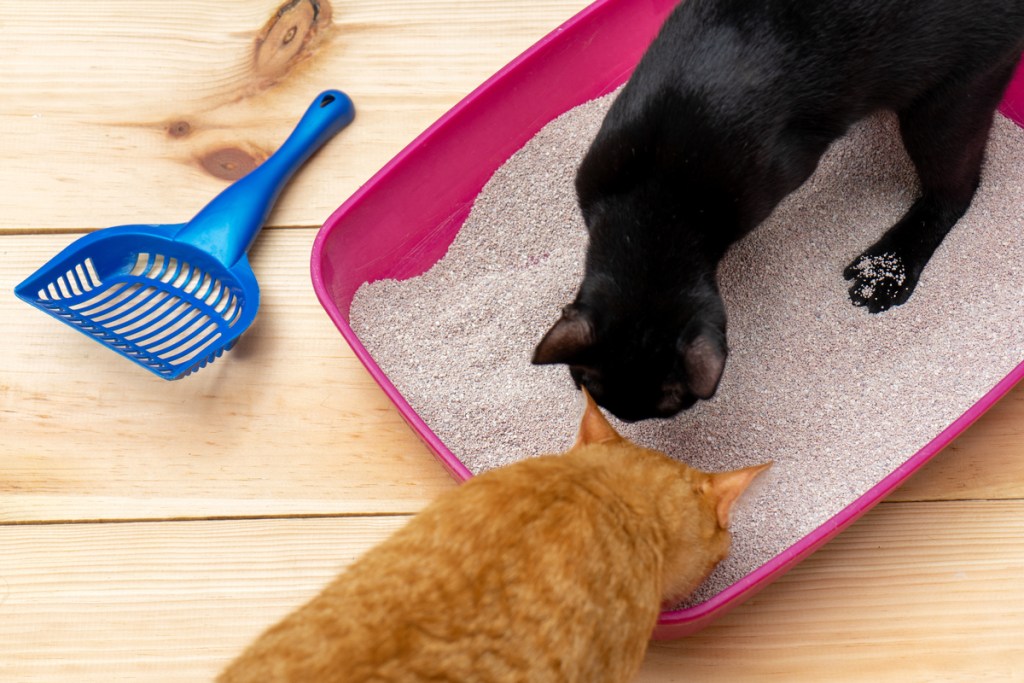
How do fleas get into the litter box? It's easier than you think
Spoiler alert — fleas don’t just suddenly show up in the litter box on their own. Unfortunately, if fleas are present in your cat’s litter, it’s because your cat brought them there. Here's what to do about fleas in the litter box, but don't forget to give your pet a good bath and flea treatment, too!
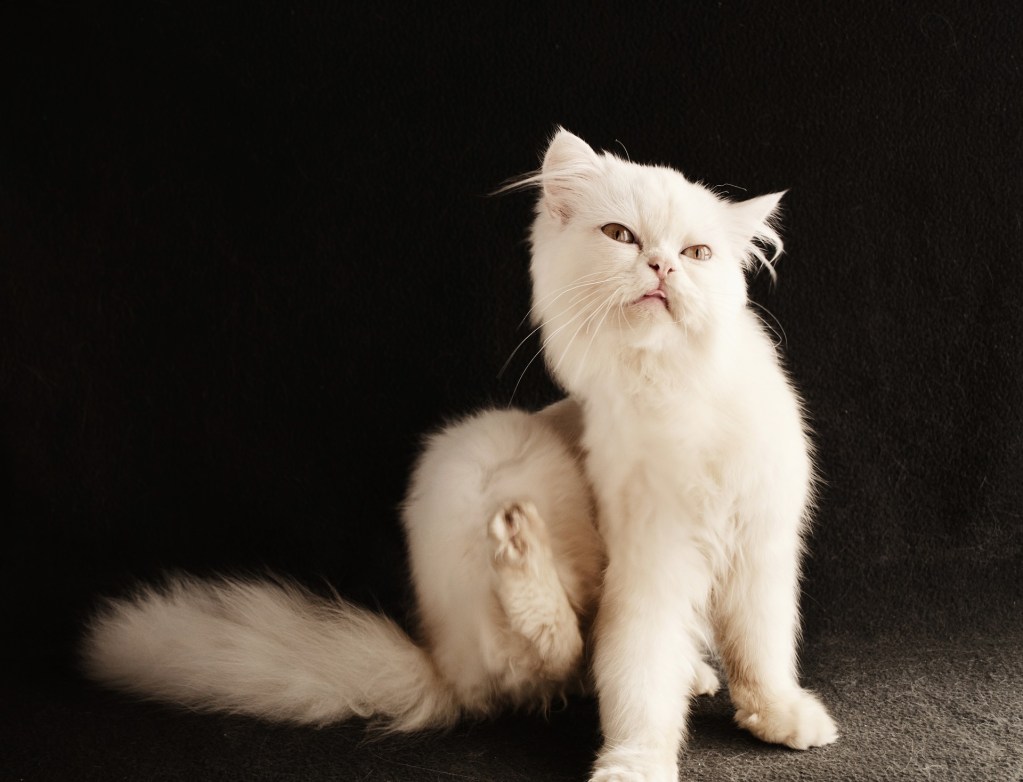
How to identify fleas in the litter box: What do they look like?
If you're asking yourself, “Can fleas live in cat litter?” you're not alone. The answer is yes; fleas thrive in humid environments exactly like your cat’s litter box. The good news is, a flea family won’t just decide to set up shop in the litter box. You'll only notice fleas in the litter box if your cat has fleas. If your cat doesn’t have fleas, however, you shouldn’t find them living in the litter box. This is why it's so important to keep our pets flea and tick-free to begin with.
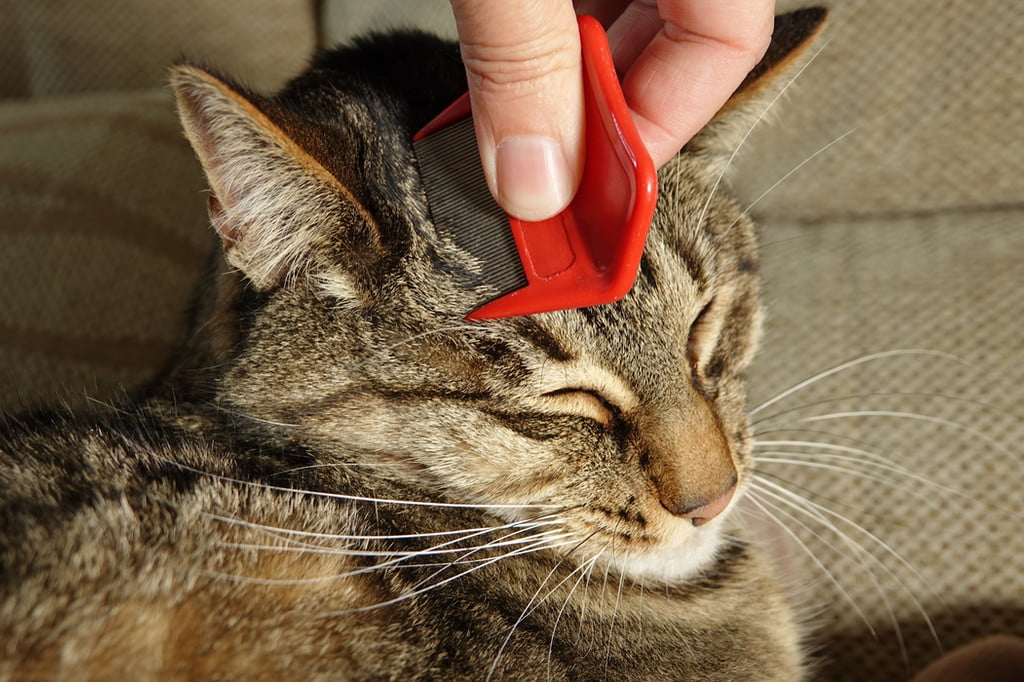
How to identify fleas on your cat using a comb
Fleas are black, brown, or reddish in color. They are tinier than a quarter of an inch long and can jump 50 times their body length. To check your cat for fleas, you'll want to use a flea comb to separate your cat’s fur so you can see their skin.
Look for small, dark dots on their skin. These could be fleas if they are moving or flea dirt (waste) if the specks don’t move. You should also check for flea bites and red, irritated skin; watch to see if your cat is itching, scratching, and chewing their skin. Even if you see only a few specks, the problem may still be serious: One female flea can lay up to 50 eggs a day, so, don’t underestimate the issue!
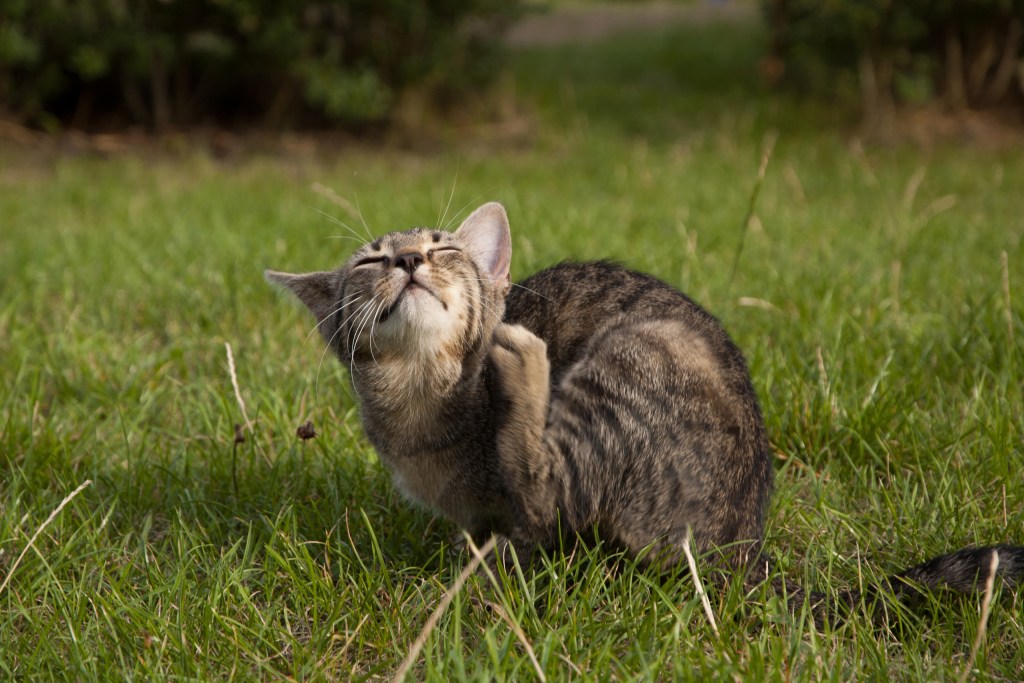
What happens when there are fleas in the litter box?
Fleas flourish in environments with relatively high humidity. Unfortunately, cat urine in the litter box creates a moist atmosphere that is ideal for egg hatching and flea growth. The flea larvae can then feed on your cat’s waste and the waste of adult fleas, which contains traces of your cat’s blood. The flea larvae will find a quiet spot in or near the litter box to build a silky cocoon. In three to nine days, the fleas will hatch and jump on your cat when they next visit the litter box.
Once on your cat, fleas consume your cat’s blood and mate with each other. Then they’ll lay eggs in your cat’s fur, which can fall out anywhere your cat goes. This is how fleas spread! If you’ve seen them on your cat or in the litter box, there’s a good chance that they have infested your home, too. Fleas and their eggs could be lurking in your cat’s bed, on the furniture, or anywhere else your kitty likes to hang out.
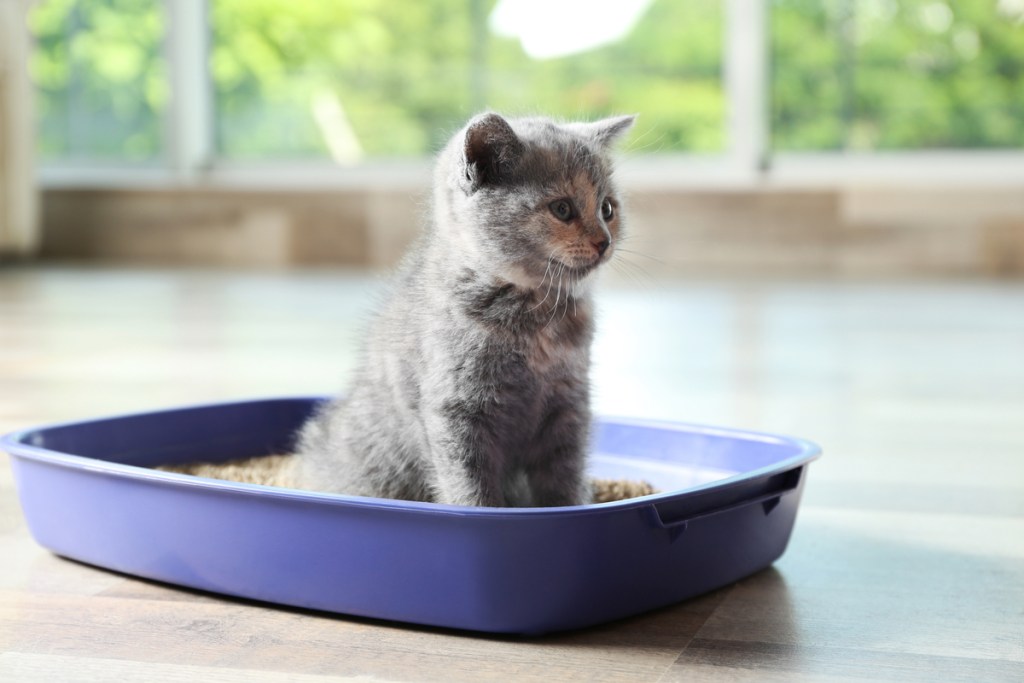
How to get rid of fleas in your cat's litter box
Luckily for you, fleas are a common enough problem that there are plenty of treatment options and cleaning advice available. Some cat owners take the trash-everything approach. You can throw out your old litter box with the litter inside and replace it after you've finished your deep clean. While this will surely get rid of the fleas, it can be an expensive solution.
Here, we will mostly focus on how to clean the litter box, but to completely eliminate the infestation, you need to treat your cat as well.
Step 1: Clean your cat.
First, you want to get the fleas off of your animal and their things. Hopefully, you will have spoken to your vet about the best flea treatment options in the past, but you can always give them a call for the best advice. For clothes and blankets, you just need a warm wash and dry to do the trick. Remember to keep clean items (and fur babies) away from objects and spaces that have yet to be cleaned!
Step 2: Clean the box.
Start by dumping out the existing litter and sealing it in a plastic bag so fleas can't escape. Then vacuum the box to remove any pupae that may be clinging to the bottom or sides of the box. This will get rid of most of the fleas.
Step 3: Wash everything.
Next, thoroughly scrub the litter box with hot water and a mild dish detergent. This should kill off any remaining fleas. Refrain from using flea sprays and other chemicals in the litter box as they can bother your cat and stop them from using the box in the future. Don't forget to vacuum or clean the floor where the litter box was sitting, too.
Step 4: Get ahead of the bugs.
To prevent future outbreaks, sprinkle some diatomaceous earth over the litter. It is harmless to your cats, but to fleas, it can be deadly. Start by adding the tiniest amount to your cat's litter in case the scent throws them off.
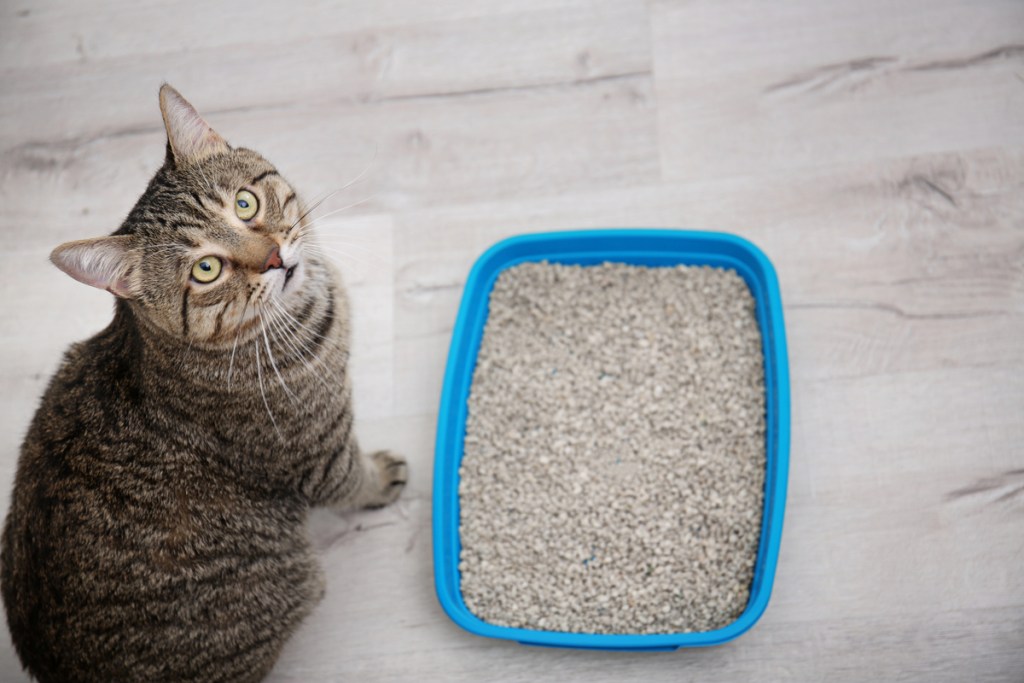
How to prevent future flea infestations in your cat's litterbox
Taking preventative measures to protect your cat, yourself, and your home against fleas is the best thing you can do to stop this kind of thing from happening in the first place. Even if you've already done damage control, consider these remedies to keep fleas out of your home for good.
Step 1: Deep clean your home.
If your cat lives primarily in one room of the house, you may be able to get away with deep cleaning one room. Otherwise, prepare yourself to clean virtually every surface your cat has touched.
When vacuuming floors, be sure to empty the vacuum bag into its own bag that you can seal shut before throwing away. The last thing you would want is to let the fleas right back into your home.
Step 2: Use flea-repellent plants and essential oils.
Some plants and essential oils can be used as a natural flea repellant. These include:
- Lavender
- Chamomile
- Citronella
- Mint
- Lemongrass
- Fleabane Daisy
- Fleawort
Step 3: Keep your cat indoors.
One of the very best ways to ensure your cat stays flea-free is to keep them away from places where they might pick up fleas. An indoor cat is way less likely to run into fleas, so consider keeping your furry friend inside.
Fleas are an annoying and destructive problem, but one you can fix. When fleas get in your cat’s litter box, they can multiply and make your cat miserable. But by following this guide, you can clean out your home and get rid of the little pests once and for all.




